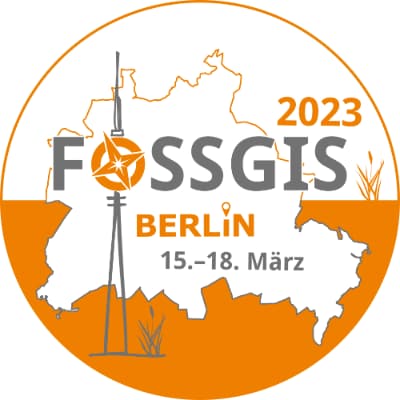PostGIS Day 2022 Recordings
The recordings of all 22 talks from this year’s PostGIS Day are up on Youtube now. That’s almost eleven hours of PostGIS content to keep you warm this winter.
The recordings of all 22 talks from this year’s PostGIS Day are up on Youtube now. That’s almost eleven hours of PostGIS content to keep you warm this winter.
Thanks to the excessive length of this year’s PostGIS-Day schedule, I could catch a couple of hours on Friday morning. Here’s a quick summary of some of the talks I saw.
Ryan Lambert of Rust Proof Labs took a deep dive into some fantastic PostGIS wizardry for routing outside of roads, such as waterways, indoors or on access-restricted private roads. A considerable part of the solution to these complex problems comes down to deep knowledge of PostGIS’ functionality but doing basic things like understanding your data, cleaning data, understanding and documenting edge cases and making decisions on the problems you don’t want to solve. Ryan also recently published a book on PostGIS and OpenStreetMap.
Brian Timoney showed how to create goal-scoring heat maps for NHL games, inspired shot-efficiency maps Kirk Goldberry did for the NBA. He used the public NHL API as the data source data, downloaded data using pgsql-http, and created the visualisation all in PostGIS. Also, what a refreshing way to present; I had a great laugh watching Brian.
Martin Davis talked us through some new features introduced in PostGIS 3.3), such as
ST_SimplifyPolygonHull creates inner and outer hull for polygons but preserves the polygon topology, including holes or islands.ST_TriangulatePolygon computes Delauney triangulations on polygons.Martin also gave a sneak peek to features landing in future versions of PostGIS, such as validating polygon coverage, simplify boundaries on coverage polygons, and simplifying inner boundaries while keeping outer boundaries unchanged.
Brendan Farrell presented db2vector, which creates bespoke vector-tile APIs from data in PostGIS. Db2vector allows you to specify a specific SQL query for each API endpoint, so you can quickly create different web maps from a single data source with great flexibility. (Unfortunately, I couldn’t find any page to link to detailed information about the service.)
And finally, Paul Ramsey talked about Moving Objects, a proof of concept he has built to demonstrate how updates to records in a Postgres database can be propagated in near real-time to clients. It uses a mix of triggers, Postgres notifications, and pg_eventserv to push notifications to web clients via WebSockets.
GeoPython is a three day event directed at people who use Python to wrangle geographic data.
GeoPython 2023 is an in-person-only event. The call for speakers is open until 16 December 2022 and tickets are now on sale from CHF300, or about USD315.
The program from this year’s Pacific Geospatial Conference in Fiji has been released. The focus of the 2022 editing is less on technology but on applications to problems specific to the Pacific region. For a pleasant change, the list of presenters doesn’t include the usual suspects from the industry.
NACIS, the North American Cartographic Information Society, have uploaded recordings of this year’s annual meeting in Minneapolis. The playlist contains over 100 videos covering all sessions from the meeting.
The fine folks at Crunchy Data have lined up a great set of talks for a one-day conference celebrating this year’s PostGIS day on 17 November. It’s an online event, with sessions scheduled for over twelve hours; wherever you in the world and whenever you’re awake that day, you can drop in at any time. The event is free and registration is now open.
If you couldn’t attend in Florence, or if you want to catch up on the talks you missed: The recordings for this year’s State of the Map are now on Youtube in one big playlist.
FOSSGIS is the major German-speaking community event for geospatial open-source software and OpenStreetMap, a smaller, local, German-speaking FOSS4G. It is held annually and usually attracts several hundred people to share and discuss the latest trends and advancements around software, open data and case studies.

FOSS4G 2023 will be held from 15 to 18 March 2023 in Berlin. The call for participation is now open until 7 November 2022. As usual, there will be a mix of general and academic talks, lightning talks, workshops and project demos.
Speaking of local FOSS4G events: FOSS4G:UK is scheduled for PostGIS Day, 17 November. There won’t be a single location, instead FOSS4G:UK takes place simultaneously at 10 locations across the UK.
The event is free to attend for anyone interested — organisers ask you to donate £20 to OSGeo:UK, MapAction or another charity.
In addition to local schedules, keynotes and selected sessions will be streamed to all locations, and sessions will be streamed online if you can’t attend in person.
A small FOSS4G meeting will be hosted at Vanderbilt University in Nashville, TN between 30 November and 2 December 2022. Tickets are only $25, there will also a free online stream available.